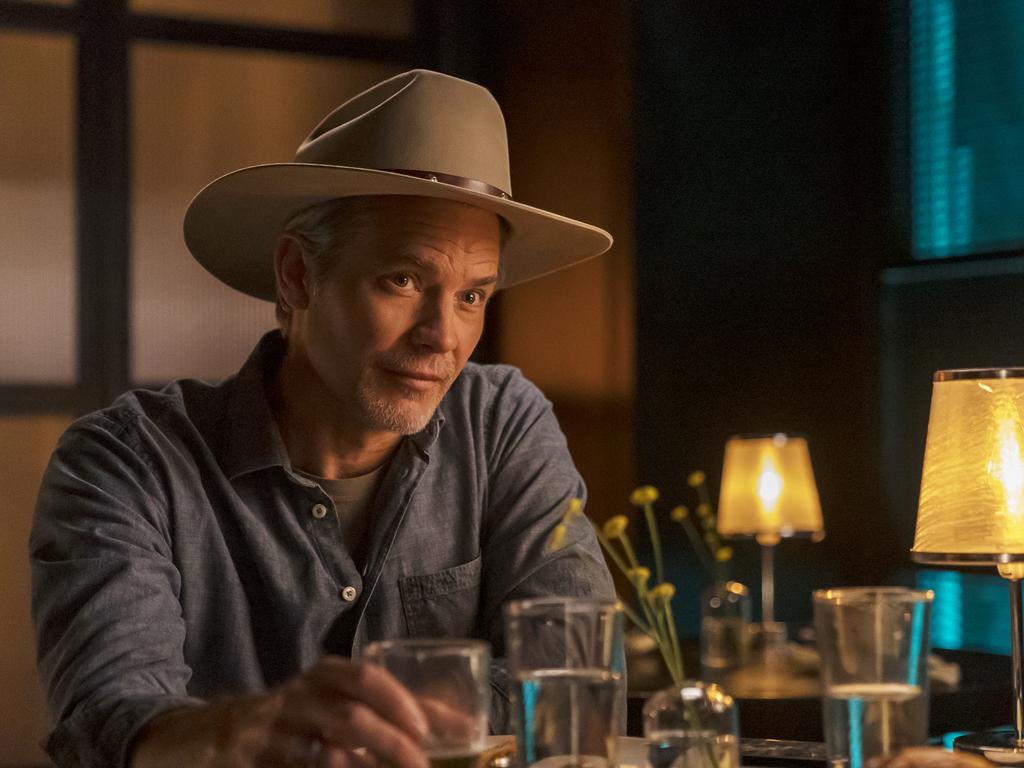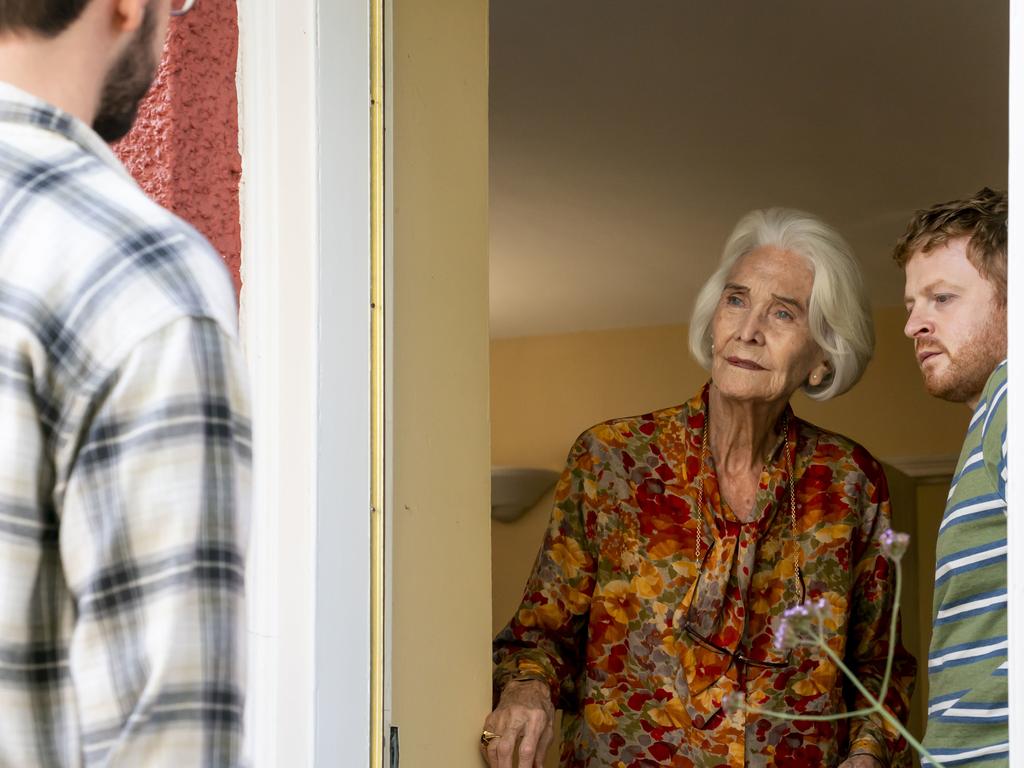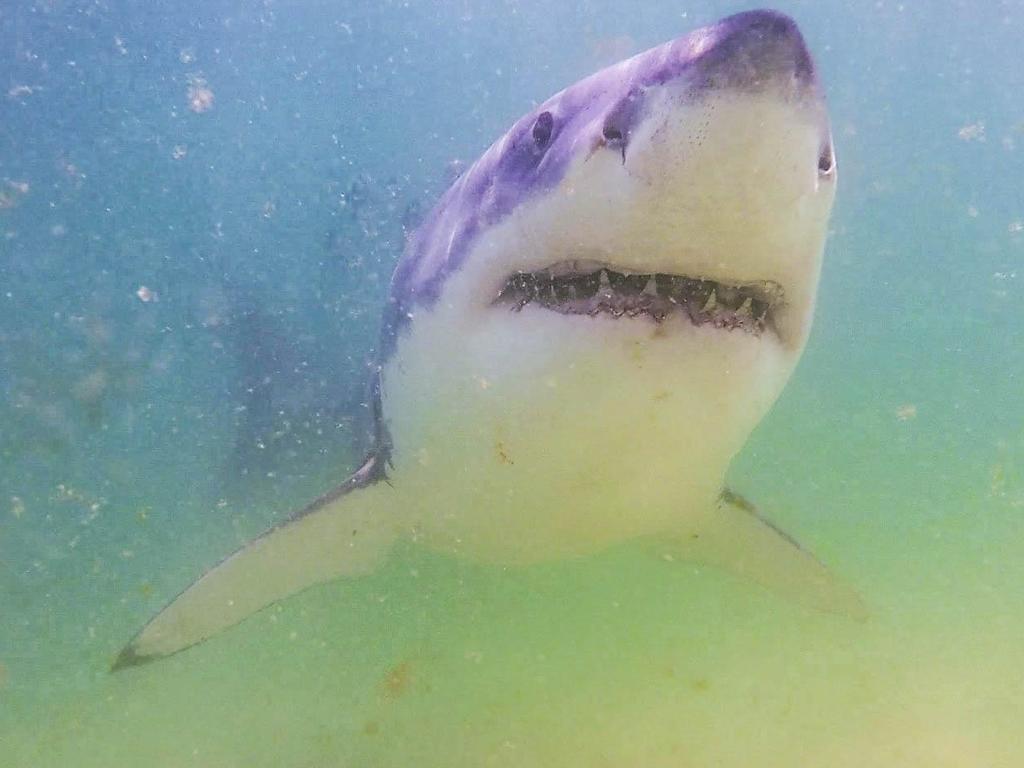Why lettuce could be killing you: Netflix’s Poisoned raises food fears
This eco-horror thriller is confronting and scary and will have you thinking twice about what you buy at your local supermarket.
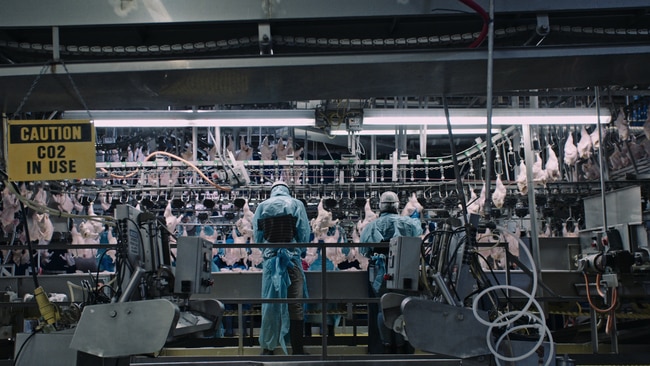
The new Netflix documentary Poisoned: The Dirty Truth About Your Food is rather like an eco-horror thriller. It’s confronting and scary and will have you thinking twice about what you buy at your local supermarket. It explores the way those who produce food in the US are able to convince people to consume their products, even though they continue to kill them.
The film asks one major unrelenting question – if America’s food is “the safest in the world”, as is constantly claimed, why is it that its producers can’t and won’t protect people who consume it when it isn’t? And as the film so convincingly points out, the complexities of the food industry’s jurisdictions means the consumer can only eat at their own risk.
One thing is certain – after watching it you will never consume supermarket chicken again or any salad leaves wrapped in plastic. And you will avoid any hamburger joint that doesn’t have a thermometer in kitchen to ensure their patties are cooked to at least 165 degrees Fahrenheit. The risk ain’t worth losing a leg.
And what the film emphasises, based on serious research and reporting, is that the food system in the US is full of crooks who don’t give a damn about the terrible harm so many of their products cause, capitalism run riot.
The film is from award-winning director Stephanie Soechtig, co-founder of Atlas Films, which co-produced the documentary with Ross Dinerstein’s Campfire. And while she has directed and produced many projects for Netflix, Amazon and Apple TV+, Soechtig has made a reputation for her documentary explorations into not simply the role of food in American lives, but the way she has exposed the deficiencies of the supply chain, through which raw materials are turned into edible products.
Her work has exposed a twisted tangle of cause and effect, a battle between people’s health and huge profits. She has exposed an increasingly industrialised system that values low operating costs in an industry where workers are some of the lowest paid in the country and where millions have little idea where their next meal is coming from.
Her film Tapped deconstructed the US bottled water industry, Fed Up examined the causes of obesity in that country and The Devil We Know exposed the way the DuPont corporation for decades denied the hazardous effects of chemicals used in the manufacture of Teflon kitchenware.
The new film is based on Jeff Benedict’s book, Poisoned: The True Story of the Deadly E. Coli Outbreak That Changed the Way Americans Eat, Benedict co-writing it with Soechtig and executive producing. “Poisoned began with my interest in writing about the Jack in the Box E. coli infections in 1993 that sickened over 750 children, four of whom died,” said Benedict in a statement about the project.
“But once I entered that world, it became clear the story was much bigger than one outbreak. It’s the same broken system behind each of these horrific events, and while we’ve become more vigilant about what we eat, the issues plaguing the industry rage on.”
Soechtig takes Benedict’s research further, delving into baffling new statistics, a range of dangerous presumptions about food, and its preparation, and several confronting criminal acts and cover-ups.
“The food industry is so incredibly vast, flawed and full of deceit, yet crucial to the wellbeing of our society,” she told Variety. “For a filmmaker, there aren’t many topics as universal, timeless and critical, and yet there are still so many stones left unturned.”
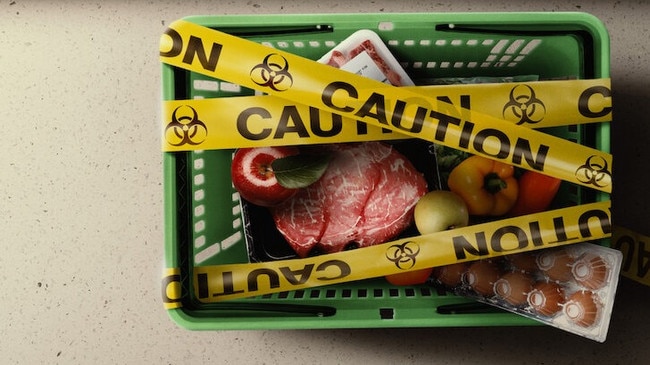
Poisoned is made without a great deal of artifice, though cinematographer Rod Hassler adds nice embellishments to what is basically a talking heads documentary, which also includes some easy-to-follow graphics and graphs. There’s also a clever soundtrack from composer Justin Melland. Soechtig appears herself several times asking questions but Poisoned is thankfully not one of those projects that is explicitly about the creator and the process of researching such significant stories.
Although like those creators she sifts through evidence with the help of food scientists, journalists and authors who have written extensively about the subject, like Marion Nestle, who wrote Safe Food, and Timothy Lytton, Outbreak. And Soechtig reconstructs a timeline creating a coherent narrative from the many fragments of sometimes contradictory evidence.
The film opens in a supermarket where Soechtig is walking with Bill Marler, a food safety lawyer and advocate, who has dedicated 30 years of his life to fighting cases on behalf of victims. He’s a charming, avuncular man, whose kind eyes only occasionally betray his dismay and anger at a system he is still fighting.
He acts to a large extent as the film’s narrator and conscience. “We are told to eat healthy, to shop the perimeters of the grocery stores, but I think what people don’t realise is that might be the riskiest area,” he says, gesturing to rows of fresh-looking produce. “When I look around, I probably see 10 to 15 items that might probably contain likely contaminants.”
Romaine lettuce is infamous for being one of the most contaminated vegetables, he says, and since it is not cooked, it poses even more danger. Cut fruits are hazardous, as are tomatoes and rockmelon.
A montage follows with close-ups of the faces of politicians as they boast of how the US has the safest food supply in the world, intercut with sequences of microbes slithering around under microscopes, police taping off crime scenes, and scared-looking news anchors reporting on famous cases of food infections.
Soechtig and Marler then take us back to the 1993 E. coli outbreak, eventually traced to undercooked hamburgers from the Jack in the Box chain, the bacteria sickening over 700 in four states, leading to 171 hospitalisations and four deaths. “You try to protect your kids and then something comes along that you’ve never heard of striking kids, devastating,” says Darin Detwiler, whose son, Riley, died as a result of a secondary E. coli infection.
Detwiler, another crucial commentator in the film, is an academic who, after his son’s death, goes on to become a food safety warrior focusing on desperately needed reform.
Marler, then a young lawyer, found evidence that proved that the owners of Jack in the Box were not following the regulations. After going through the documents he had received during his investigations, he discovered that an employee had alerted the authorities about customer complaints regarding undercooked hamburgers. It had made no difference to the owners.
The film goes on to investigate the problems of meat processing and the way that processors laid the risks at the feet of users. “Proper cooking kills bacteria,” it was proclaimed. But as Marler says, while the Jack in the Box case eventually changed the beef industry, the problems of pathogens in other foods remains. These days he says it’s the lettuce, tomatoes and onions that are the problem.
This of course leads inexorably to an extensive investigation into these “culprits”, especially leafy greens, there being no “killstep” in prepackaged foods. Even being called “organic” hardly means no pathogens are present.
Marler points out that the US inspection regime is no further advanced than it was when Upton Sinclair wrote The Jungle in 1906, his supposedly fictional exposure of the meat packing industry which led to the Pure Food and Drug Act.
This leads us to the perils of eating chooks. “In this country,” a lab scientist says, “if you buy poultry from any grocery store, regardless of the brand of poultry that you buy, your primary assumption should be it contains pathogens such as salmonella and campylobacter.”
It’s certainly a harrowing and courageous piece of filmmaking, an engrossing example of the way that TV factual program has become such an interesting hybrid of documentary and drama, journalism and, well, entertainment. Even if this film jolts as much as it does, it’s also fascinating in a kind of Stephen King way.
And it’s always educational, the medium put into the service of good causes as a kind of representative of a collective social consciousness. Though Soechtig and her experienced collaborators know it’s vital not to hector people, not to preach and not to patronise.
“Food is the great equaliser in many ways – we all eat,” Soechtig says. “As consumers, we assume that the food on our shelves is safe. To learn that it is not safe and that there are ways to make it safe that are being ignored, that’s something people deserve to know.”
Poisoned: The Dirty Truth About Your Food is streaming on Netflix


